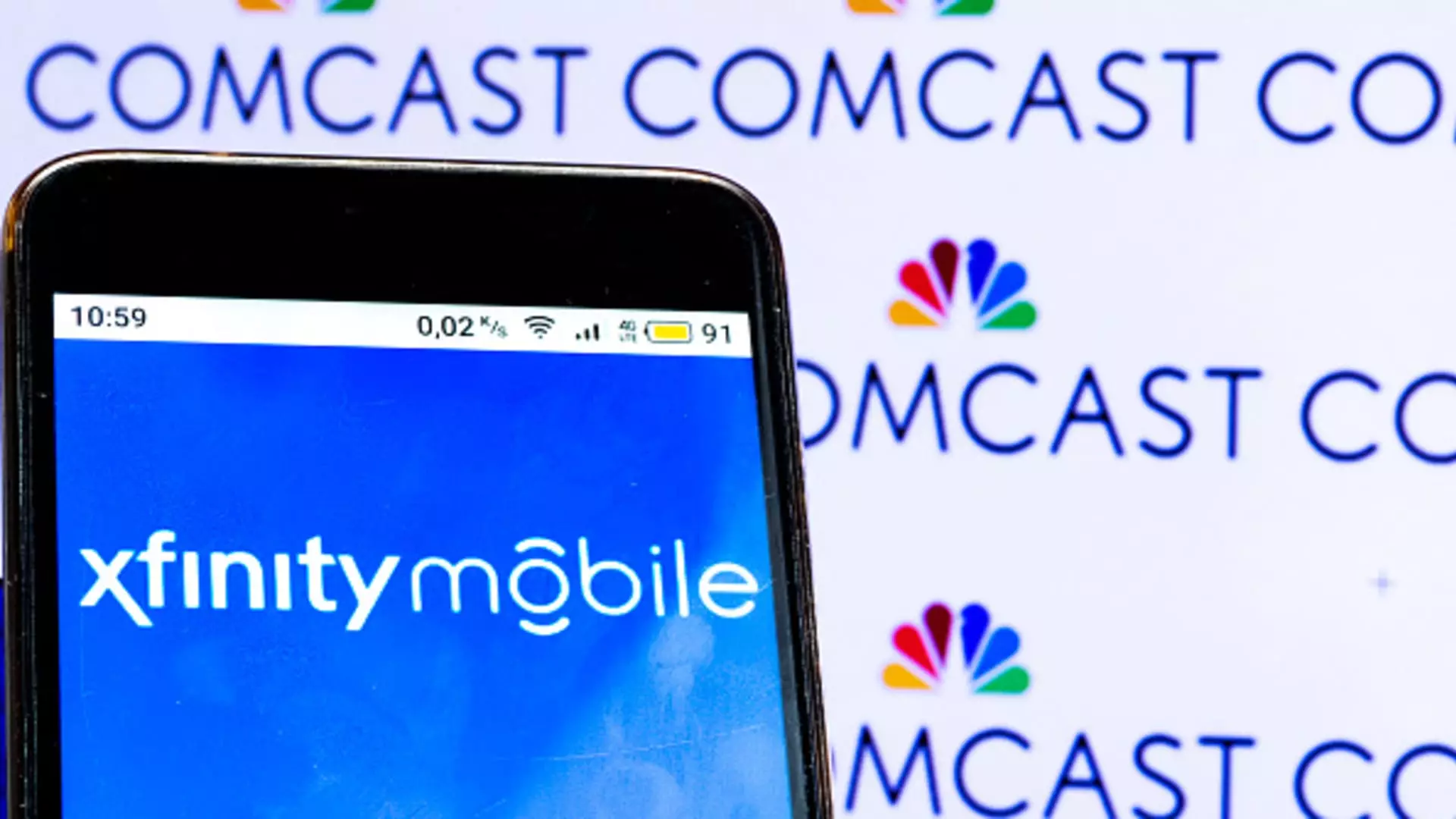The rebranding of Philadelphia’s cherished sports venue from the Wells Fargo Center to the Xfinity Mobile Arena is more than just a name change; it’s a profound statement about the evolution of the cable and mobile industry and the cultural landscape of American sports. As Comcast Spectacor and Harris Blitzer Sports & Entertainment announce this shift, the focus on mobile technology almost outweighs the cultural heritage of a city that reveres its sports teams. The question looming over this transformation is: will this shift resonate with the fans, or will it simply serve as a marketing ploy?
The Corporate Machine and Fan Engagement
Corporate branding has often clashed with community identity, and the Philadelphia sports landscape is no exception. By coupling the name of the arena with a telecommunications giant like Comcast, one must wonder if the passion that fills those seats will be overshadowed by endless branding and marketing efforts. Philadelphia is known for its devoted sports fans; their deep-rooted loyalty extends beyond the teams to the venues themselves. While the upgrades, including improved Wi-Fi services for Xfinity Mobile customers, are undoubtedly a benefit for tech-savvy spectators, they carry with them the ever-present specter of commercialization.
The metaphorical cheering crowd becomes an extension of the Xfinity brand, rather than a thriving participant in the emotional and cultural aspects of live sports. Corporate ownership may promise a new era of connected experiences, but at what cost? When fans engage with their team in a space named for a corporation, the personal connection to the venue may diminish, leading to a sterile atmosphere that feels more like a shopping mall than a historical sports arena.
Unsustainable Growth or Strategic Vision?
Comcast has reported an increase in mobile subscriptions, but these figures should be taken with caution. Is this growth sustainable, or merely a momentary spike in a fragmented market? The announcement of the rebranding coincides with Comcast’s efforts to shift its strategic focus, illustrating the lengths to which a company must go to reclaim relevance in a fiercely competitive industry. While the Xfinity Mobile Arena name might grab headlines, the implications on long-term brand identity and market positioning could prove disillusioning.
Moreover, attaching the Xfinity brand to a sports arena does not guarantee sweeping changes in customer loyalty. People do not purchase tickets because of catchy marketing slogans; they invest emotionally in their teams, their passions unbound by the corporate interests vying for their attention. Philadelphia fans may find it hard to connect with the new arena name, a stark contrast to the historical significance held by the Wells Fargo Center.
An Opportunity for Transformation
Nevertheless, the shift to the Xfinity Mobile Arena does provide some intriguing opportunities. By upgrading the infrastructure of the venue and enhancing connectivity, it presents possibilities for a more interactive experience. Fans could potentially engage with real-time merchandise promotions or instant replays using their mobile devices, which could redefine how games are experienced.
However, this technological advancement must honor the authenticity that Philadelphia fans expect. If the experience becomes merely transactional—focused on app downloads and mobile features—fans are likely to disengage. The city has always prioritized the shared communal experience over corporate gain. If Comcast wishes to resonate with its new audience, it must strike a delicate balance between commercial interests and the earthy vibrancy that sports provoke.
In an industry wrestling with rapid change, the rebranding of Philadelphia’s sports venue to the Xfinity Mobile Arena offers a glance into the future of sports fandom. Yet, as this transformation unfolds, it is critical to question whether the blend of sports and corporate branding will nurture or fracture the deep-seated relationships fans have with their teams. The potential exists for a brighter, more connected future—provided that in our technological race, we do not lose the heartbeat of what makes sports truly special: the fans and their unyielding connection to both team and home ground.

